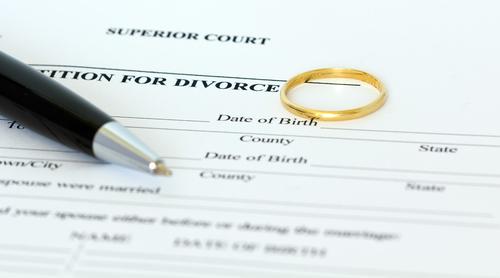Recent Blog Posts
Helping Your Children Survive a Divorce
 While any divorce can be a stressful time for the adults experiencing it, adults generally possess the coping skills and access to resources that allow them to manage the anxiety that accompanies such an event. Children, however, react to the divorce of their parents in many different ways depending on age, gender, personality, and the circumstances surrounding the divorce.
While any divorce can be a stressful time for the adults experiencing it, adults generally possess the coping skills and access to resources that allow them to manage the anxiety that accompanies such an event. Children, however, react to the divorce of their parents in many different ways depending on age, gender, personality, and the circumstances surrounding the divorce.
A number of published studies indicate that children of divorce tend to experience physical, emotional and spiritual consequences as a result of their parent’s divorce. Typical among these are:
- Poor academic performance
- Diminished emotional well-being
- Changes in social habits and/or behavior
- Increased aggression or isolation
- Changes in appetite and physical care
In some cases, children of divorce may go through their daily routine pretending that nothing is bothering them and everything is normal. While that may seem ideal, bottling up one’s emotions about a subject as volatile as divorce can be just as harmful as drastic changes in mood or behavior.
Intellectual Property and Divorce
 For entrepreneurial and inventive spouses considerations for divorce do not conclude with decisions regarding income to be calculated for child support or who inherits a spouse’s business debt. An often neglected, but uniformly important consideration is the topic of intellectual property
For entrepreneurial and inventive spouses considerations for divorce do not conclude with decisions regarding income to be calculated for child support or who inherits a spouse’s business debt. An often neglected, but uniformly important consideration is the topic of intellectual property
How is Intellectual Property Treated in Divorce
Intellectual Property is also called IP for short. It refers to the litany of legal rights that attach to an expressed idea. Put another way intellectual property is the legal defense of your mental work. Intellectual property can include copyrights, trademarks, or trade secrets.
When intellectual property becomes contentious, it usually rises from disagreements in valuation. Intellectual property is generally valued using the same determinations used to value real property. It is a complicated matter because of how IP is viewed legally. Intellectual property is viewed as unique and as such is appraised according to future market conditions.
Follow These Six Tips to Avoid Divorce

Divorce. Once that word is uttered by your spouse, you are left wondering how your relationship unraveled so quickly. While many believe that divorce is caused by significant issues such as cheating or abuse, there are minuscule behaviors within a marriage that can also derail it.
How you Can Improve your Relationship with your Spouse
However, identifying—and then changing—behaviors that may be hurting your relationship can help you avoid derailing your marriage:
1. Give each other space. Just because the both of you are married does not mean you have to attend every event or function together. Smothering your partner is not going to strengthen the marriage. Instead, you will likely get on each other’s nerves. Allocate time for yourself in which you relax or pursue activities you enjoy. Having personal time will allow you to nurture yourself, and by nurturing yourself, you will gain the energy you need to tend to your marriage. The mentally healthier you are, the healthier your relationship will be.
Will Separate Bank Accounts Create a Happier Marriage and Prevent Divorce?
 One of the most common reasons for divorce, along with cheating, is financial issues. Studies show that couples who argue about money are more likely to split. If you are considering divorce and are wondering whether your financial future may be at risk, call our Illinois divorce attorneys before making any decisions about bank accounts.
One of the most common reasons for divorce, along with cheating, is financial issues. Studies show that couples who argue about money are more likely to split. If you are considering divorce and are wondering whether your financial future may be at risk, call our Illinois divorce attorneys before making any decisions about bank accounts.
What is the Percentage of Married Couples with Separate Bank Accounts?
Although the number of married couples opening separate bank accounts is increasing (a TD Bank survey shows that 42 percent of couples have both individual and joint bank accounts), it remains taboo for spouses to maintain individual bank accounts.
However, there are several reasons that married couples should go against the grain and opt for separate bank accounts:
How your Social Media Practices Can Damage your Child Custody Case
 On May 3, 2017, YouTube stars Michael and Heather Martin lost custody of their two children as a result of a video they posted on YouTube. In the video, Michael and Heather Martin spilled invisible ink on the carpet in one of the children’s rooms. They then blamed their children for ruining the carpet, and the children cried as their parents yelled and cursed at them. Finally, Heather and Michael Martin laughed and told their children it was a prank. As seen in the video, the children were not amused.
On May 3, 2017, YouTube stars Michael and Heather Martin lost custody of their two children as a result of a video they posted on YouTube. In the video, Michael and Heather Martin spilled invisible ink on the carpet in one of the children’s rooms. They then blamed their children for ruining the carpet, and the children cried as their parents yelled and cursed at them. Finally, Heather and Michael Martin laughed and told their children it was a prank. As seen in the video, the children were not amused.
The video of the prank went viral and prompted the creation of an online petition calling on Child Protective Services (C.P.S.) to remove the children from Michael and Heather Martin’s home. C.P.S. took the children in and Rose Hall, the children’s biological mother, was granted emergency custody.
This situation highlights the impact social media can have in situations like child custody. Your use of social media should be even more stringent if you are going through a child custody battle. Electronic evidence in the form of social media posts and pictures can be used in court if the evidence meets a certain criterion.
What Is Worse: Getting Fired or Getting a Divorce?
 “I think we should part ways.”
“I think we should part ways.”
Who would you rather hear these words from? Your employer or your significant other?
Last week, What Works Center for Wellbeing and the University of East Anglia found in a study that men and women who are terminated do not fully recover emotionally. However, the researchers saw that people who are divorced do completely heal at some point in their life.
What Works Center for Wellbeing discovered that getting fired leads to a more significant decrease in life satisfaction than getting divorced or widowed does. This is because people who are unemployed are increasingly discontent in the years following their termination. With a stagnant economy, job seekers—especially those who were fired—are finding it difficult to obtain employment. This causes job seekers’ self-confidence and self-worth to take a nosedive.
Calculating Child Support When the Paying Parent Has Multiple Court Orders
 While sometimes determining child support is a straightforward matter, other cases present difficulties and gray areas. In these situations, an attorney is often required to assess the financial situation of the parents and determine how much is owed for the support of the child or children at issue.
While sometimes determining child support is a straightforward matter, other cases present difficulties and gray areas. In these situations, an attorney is often required to assess the financial situation of the parents and determine how much is owed for the support of the child or children at issue.
One such complicating factor is if a parent has more than one child support obligation. For example, if a father has children with two different mothers, there may be more than one child support order, which may affect the obligations owed.
Child Support Law in Illinois
To understand the mechanics of this calculation, we must first review the general law on child support calculations in Illinois. Beginning July 1, 2017, Illinois will be using the “income shares” method of determining child support. Under this model, courts will require each parent to prove their net income and then use tables to set the child support amount.
Modifying Orders in Divorce
 Divorce settlements and orders should always be drafted to address the future. The reason is because the decisions made during a divorce many times controls how your family grows after a divorce. Even in cases where careful planning and consideration is used in drafting an order in a divorce, life changes may dictate that the order may need to be modified at a later date.
Divorce settlements and orders should always be drafted to address the future. The reason is because the decisions made during a divorce many times controls how your family grows after a divorce. Even in cases where careful planning and consideration is used in drafting an order in a divorce, life changes may dictate that the order may need to be modified at a later date.
What Can Modified?
In order to modify an order handed down in a divorce proceeding the very first thing you must do is petition the court. This is where the help of a dauntless DuPage County family lawyer will be able to help. The types of orders that one can petition the court to modify include:
Mistakes to Avoid in Divorce
 When progressing through a divorce in Illinois, spouses have to make important financial decisions. This must be done while tolerating a great deal of emotional stress. Many times this volatile situation can cause people to make unnecessary yet consequential mistakes. A substantial mistake made regarding finance is operating and making decisions without having ample information. Without the information required to make sound decisions, the outcome of a divorce can be left to chance, or even worse, the other spouse.
When progressing through a divorce in Illinois, spouses have to make important financial decisions. This must be done while tolerating a great deal of emotional stress. Many times this volatile situation can cause people to make unnecessary yet consequential mistakes. A substantial mistake made regarding finance is operating and making decisions without having ample information. Without the information required to make sound decisions, the outcome of a divorce can be left to chance, or even worse, the other spouse.
Budgeting Through Divorce
Another common mistake made when spouses are going through a divorce is not adequately budgeting. When spouses are married, they become accustomed to having the financial resources of two incomes. When a marriage ends in divorce, the spouses are forced to adapt their financial decision making to address the fact that they no longer have the other spouse’s income available. Not making a conscious and focused consideration about the decreased income that spouses have available to them can lead to serious financial shortcomings that an Illinois court may not be able to rectify.
Visitation and Child Abuse
 Going through a divorce can be an emotionally draining ordeal with many unanswered questions that are often fought over. Decisions must be made inside of an emotional space that often drives spouses to treat every decision like a zero-sum game. Spouses may try to punish each other or hide assets. However, there are legitimate concerns regarding visitation or what is referred to as parenting time when one parent is physically or emotionally abusive.
Going through a divorce can be an emotionally draining ordeal with many unanswered questions that are often fought over. Decisions must be made inside of an emotional space that often drives spouses to treat every decision like a zero-sum game. Spouses may try to punish each other or hide assets. However, there are legitimate concerns regarding visitation or what is referred to as parenting time when one parent is physically or emotionally abusive.
Proving Abuse
Abuse can manifest itself in many ways. The most obvious form of abuse is physical abuse. In instances where physical abuse exist there are physical marks that a victim or spouse can point to as reasons why the abusive spouse should not have unsupervised or any visitation rights. It is important that you hire a fearless and knowledgeable DuPage County divorce lawyer to assist you through this difficult process. That lawyer will be able to present compelling evidence and arguments to the court that explain the extent and severity of the physical abuse and why the abuse is cause to terminate a parent's visitation rights.

 630-409-8184
630-409-8184













